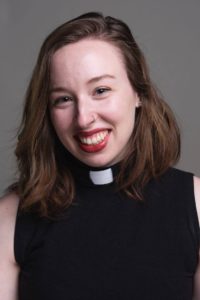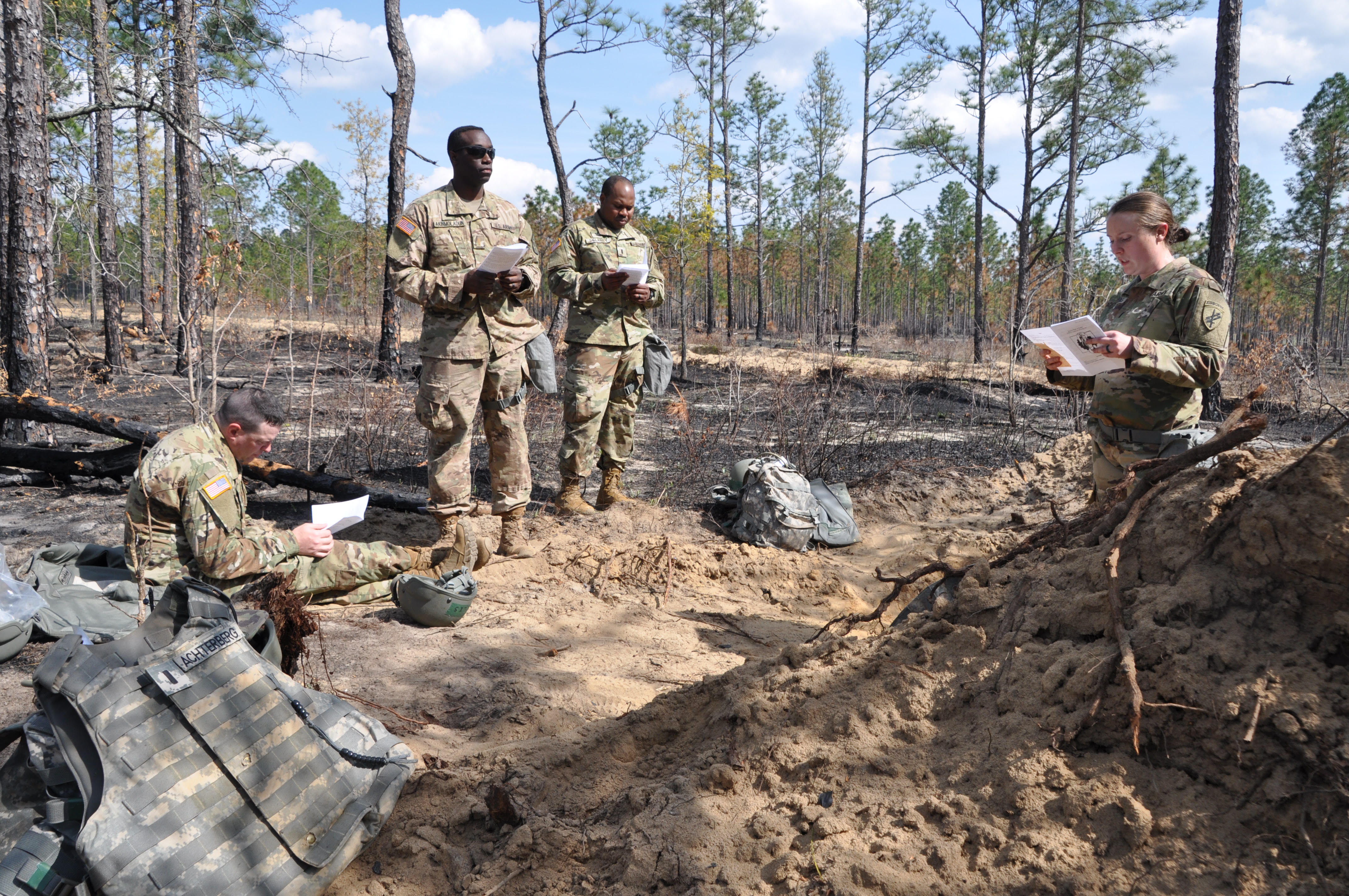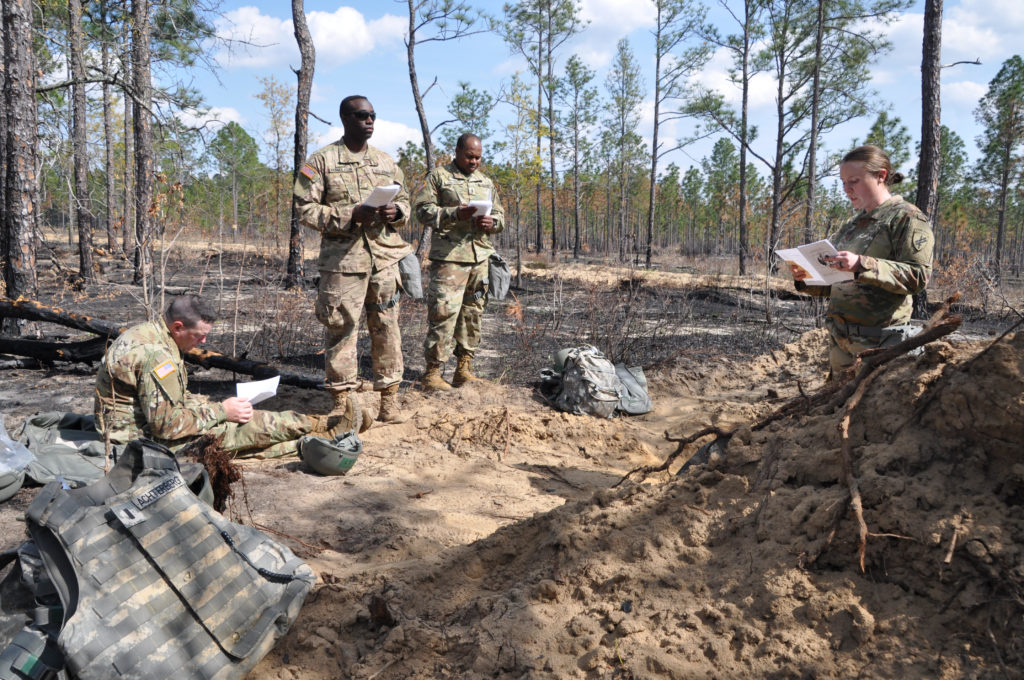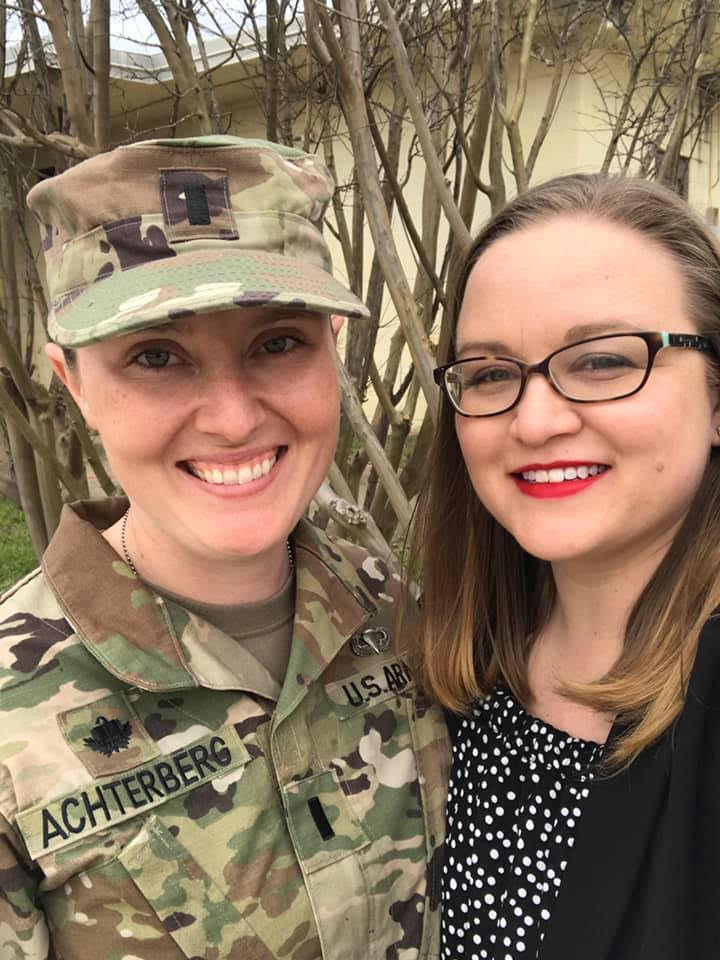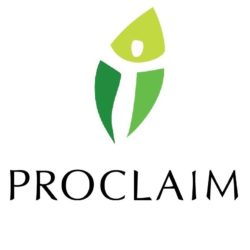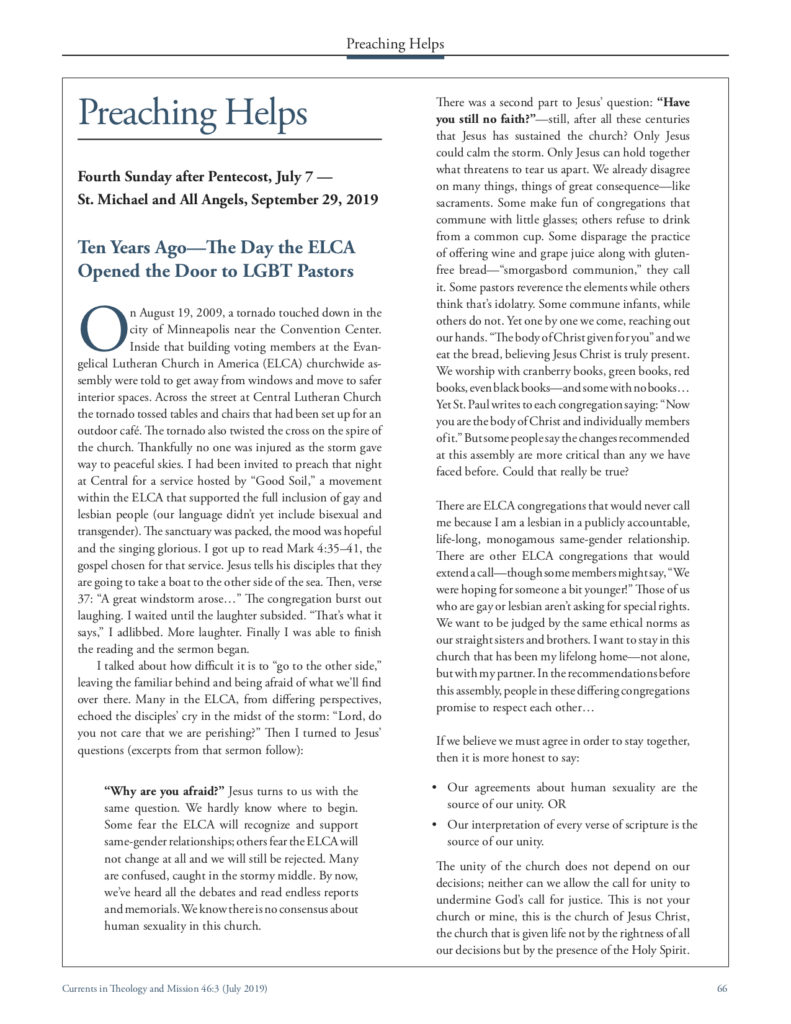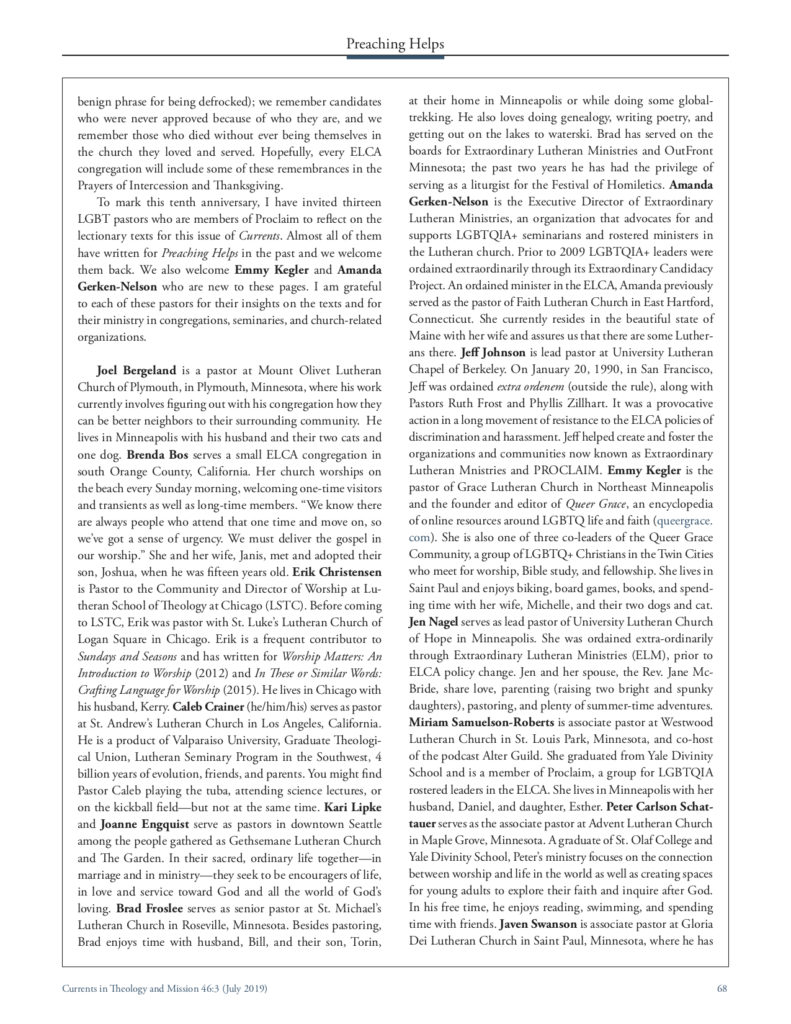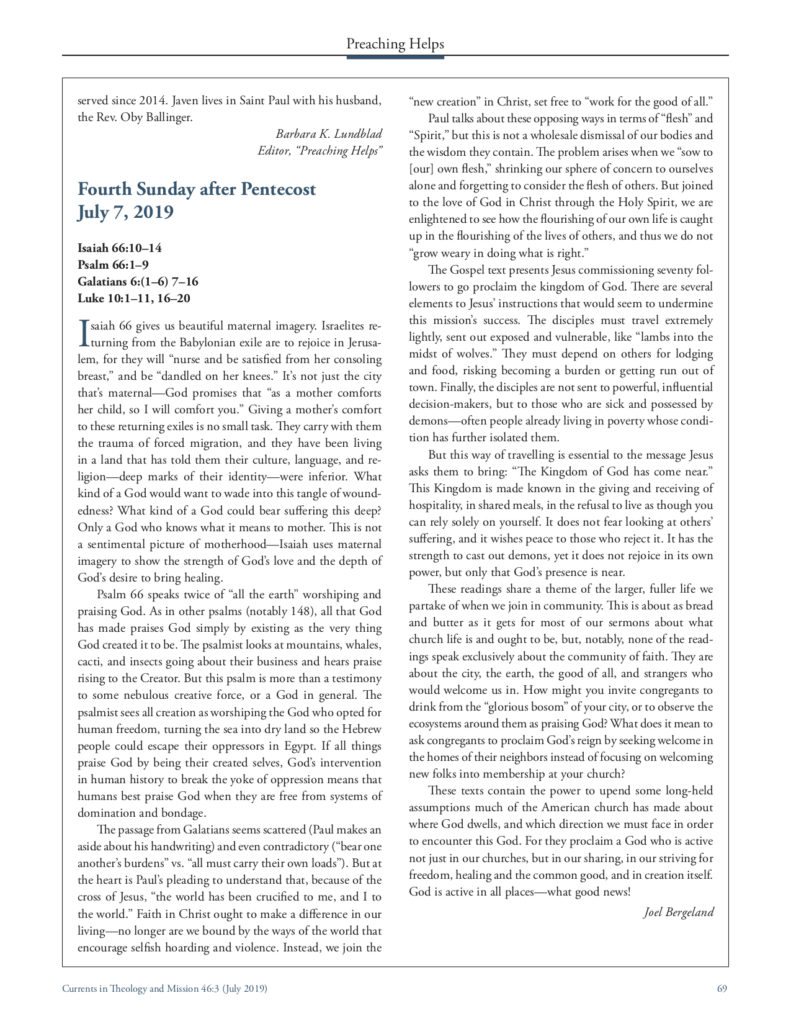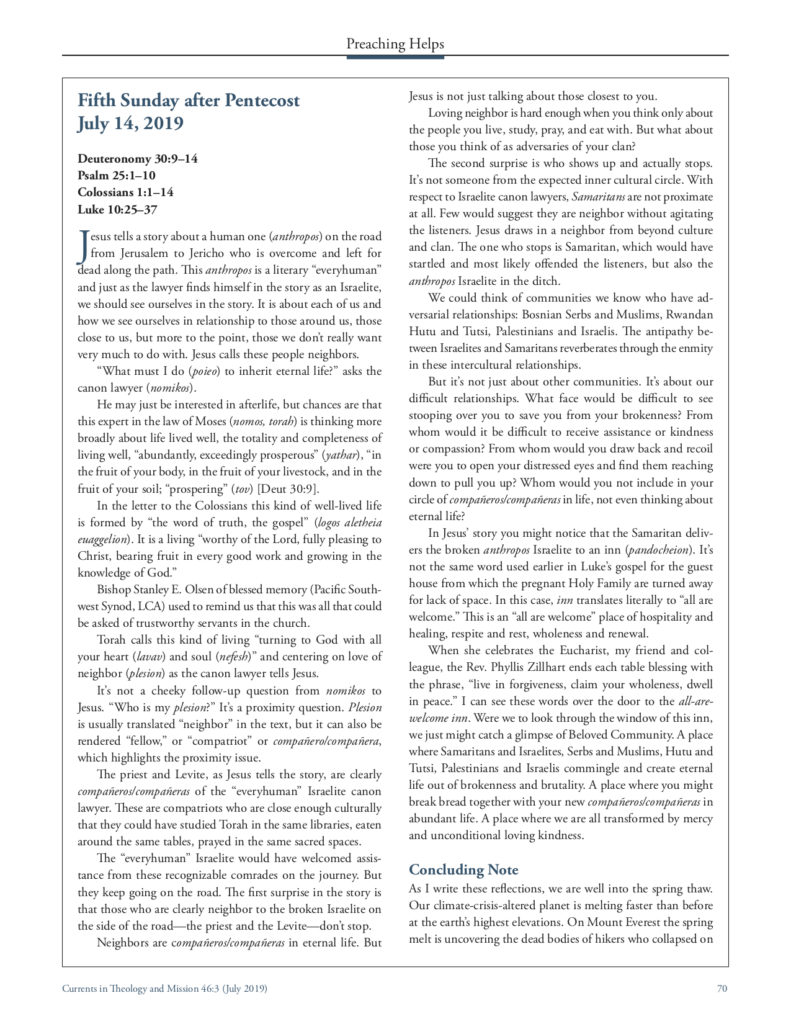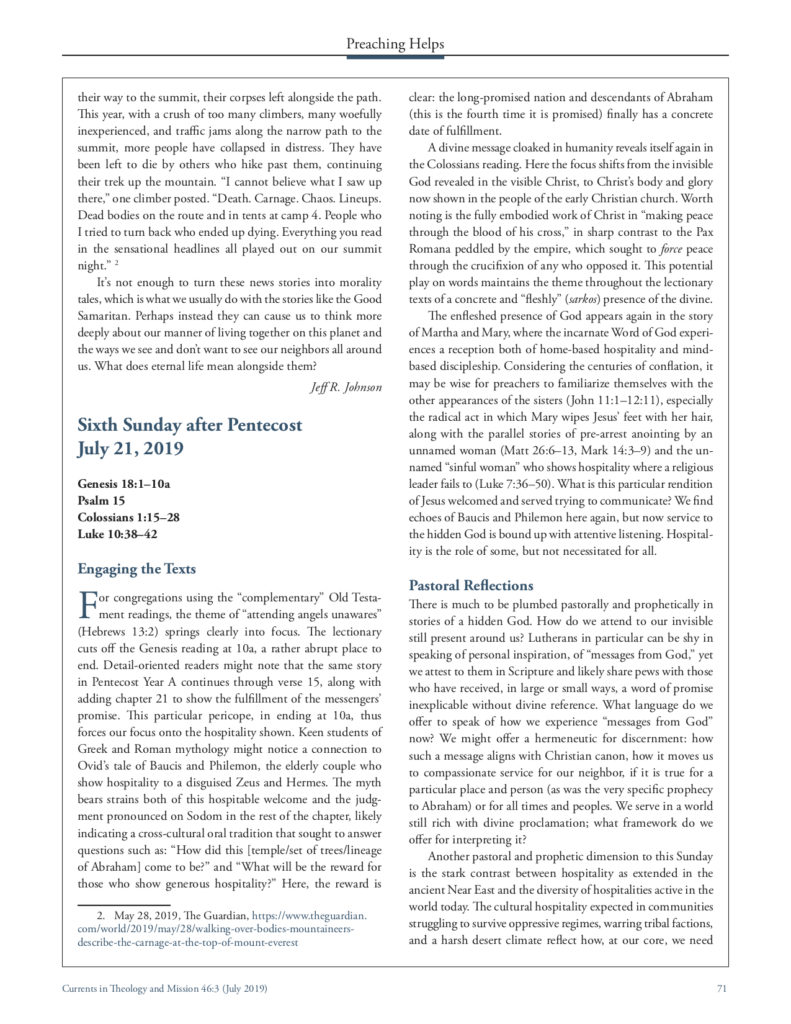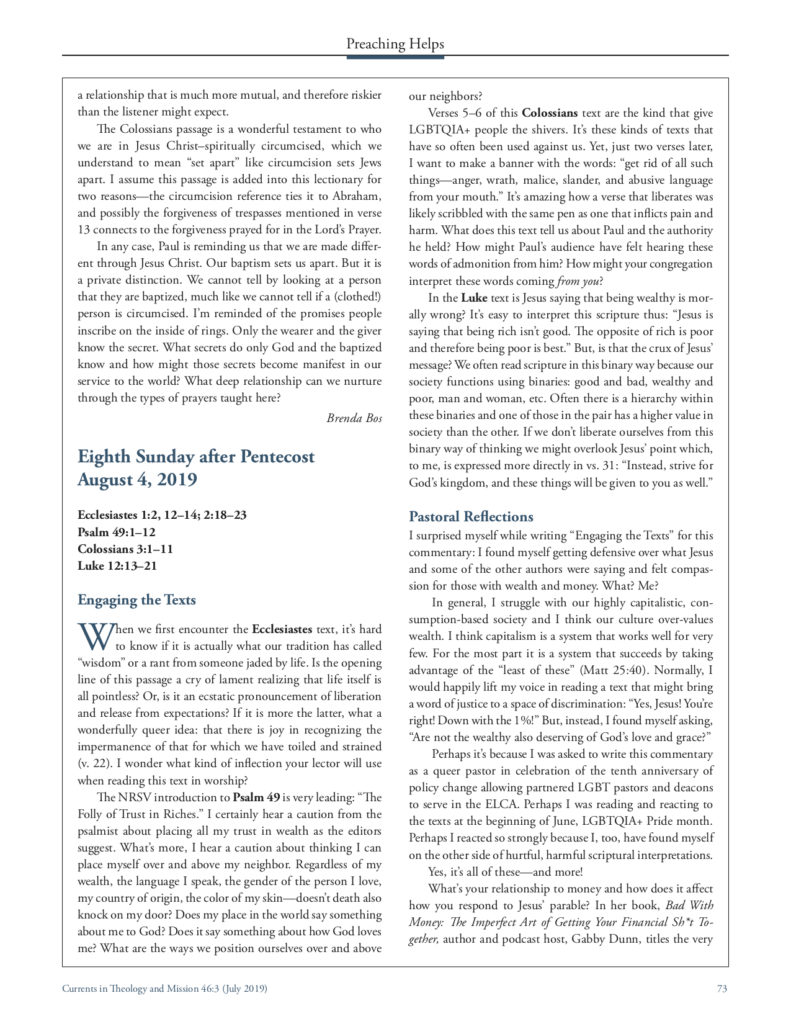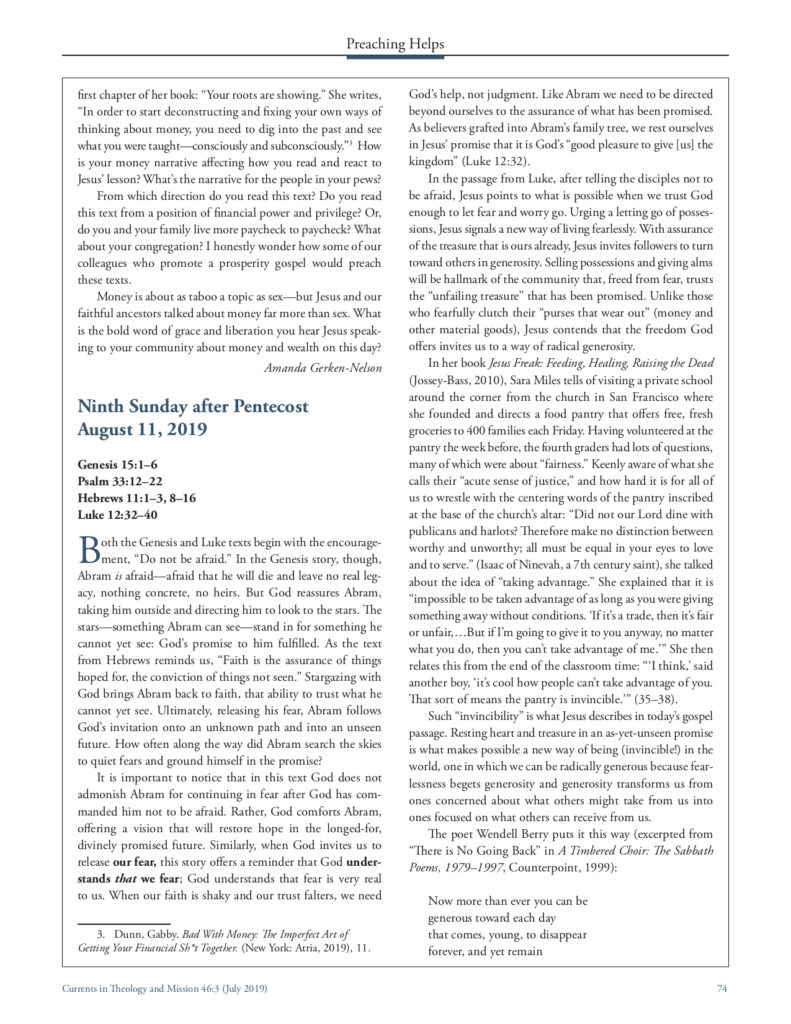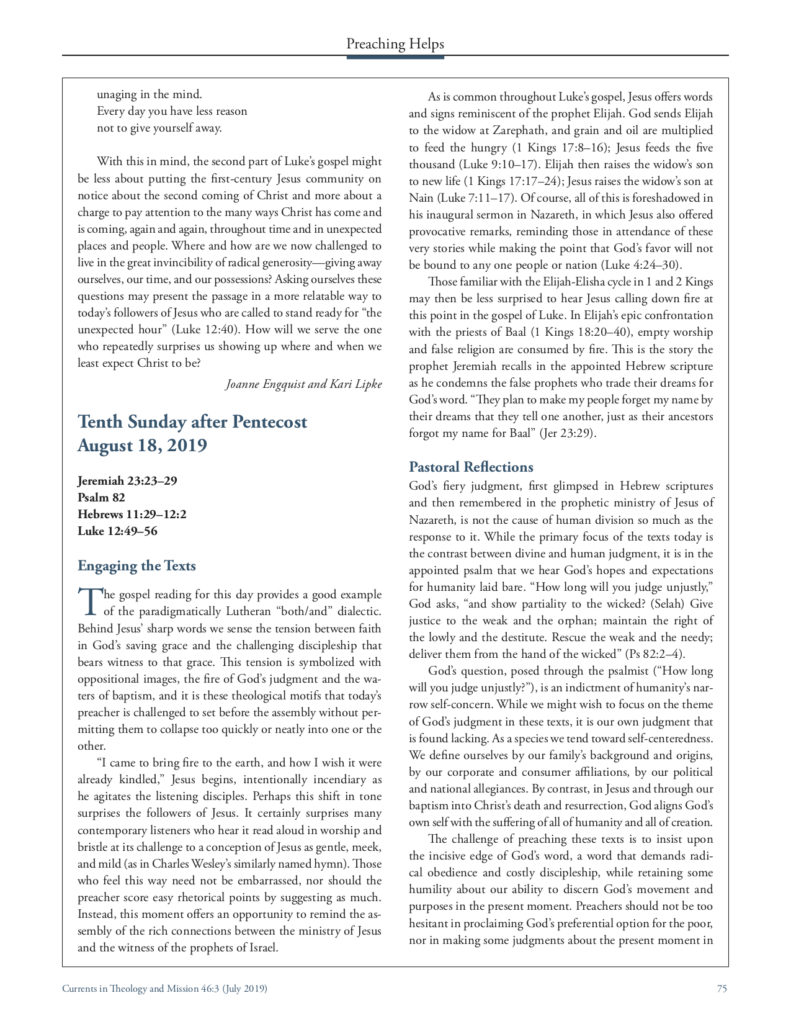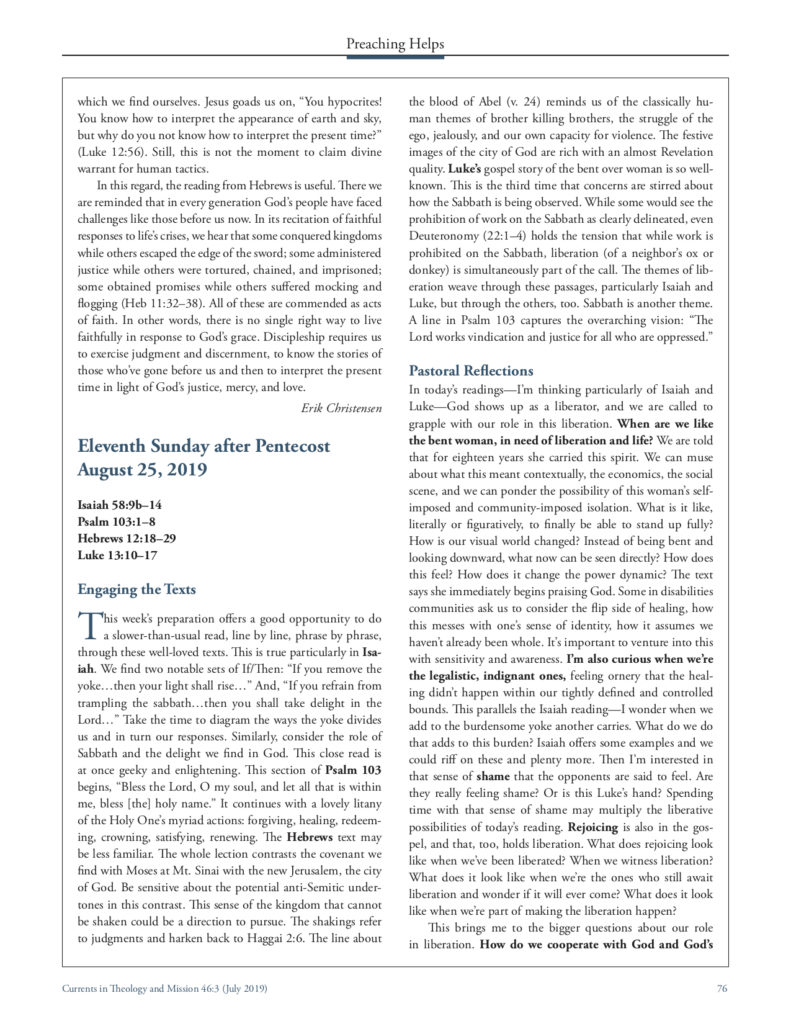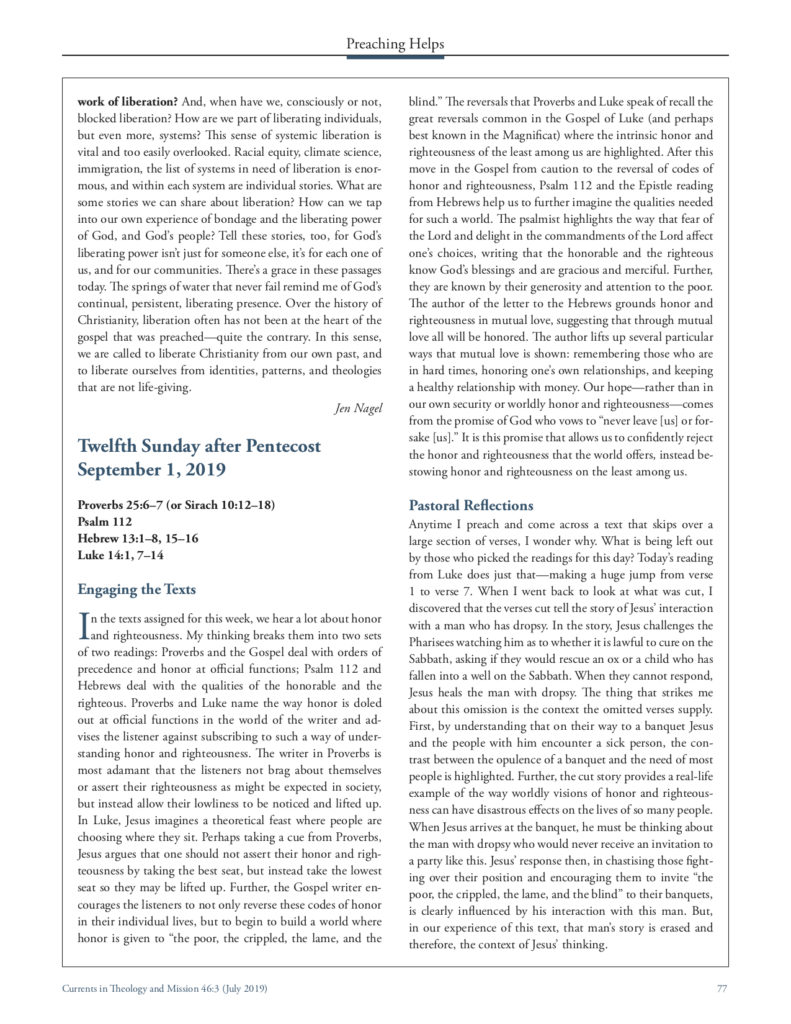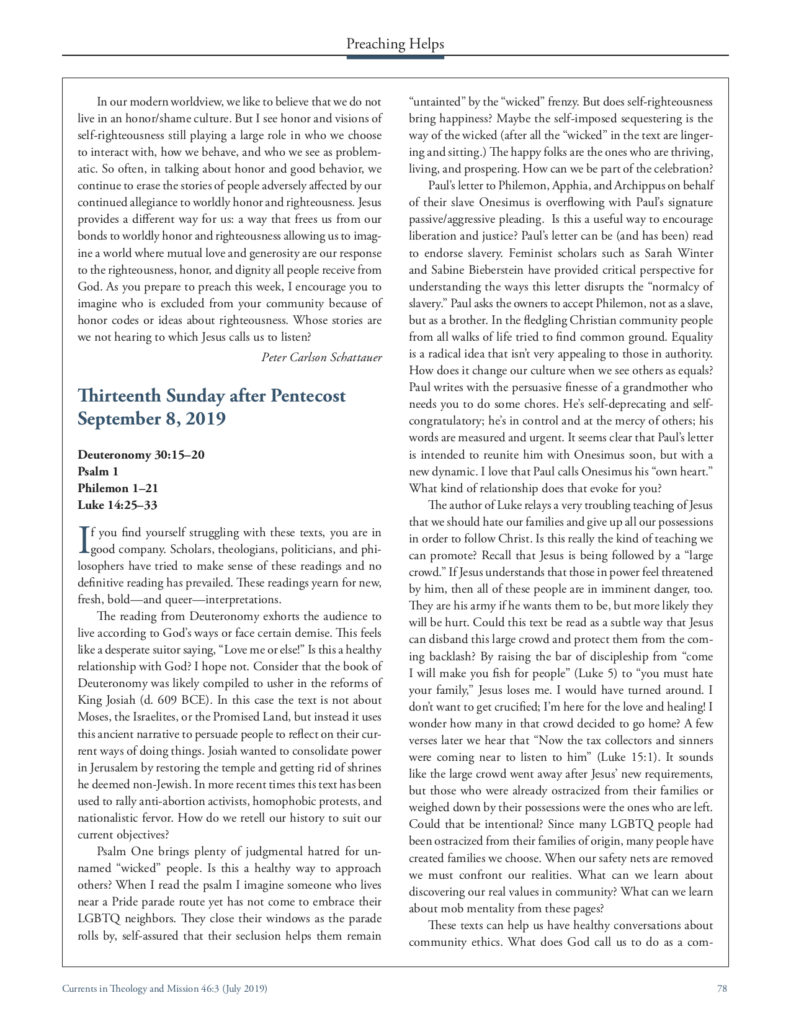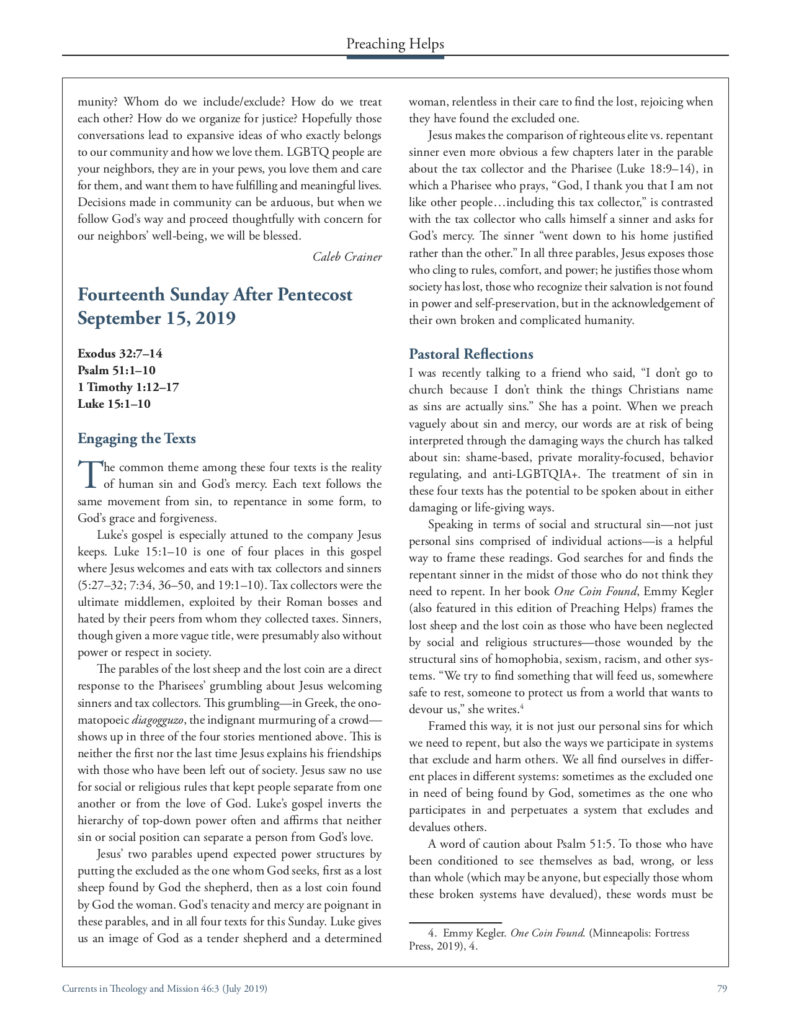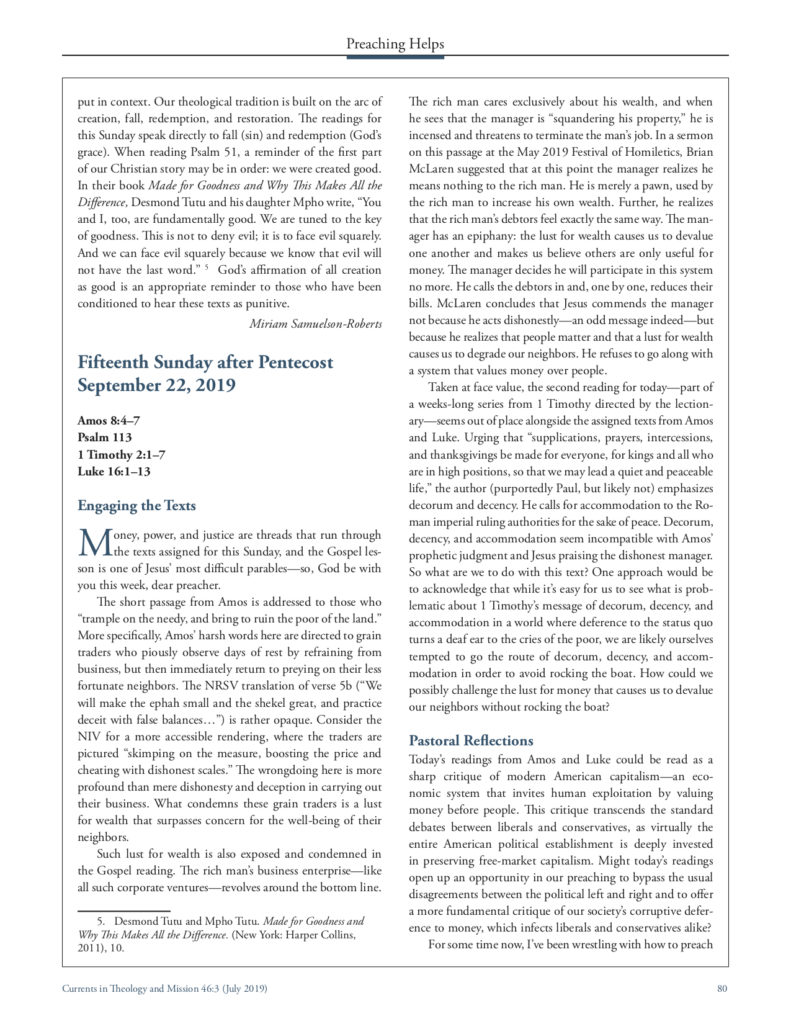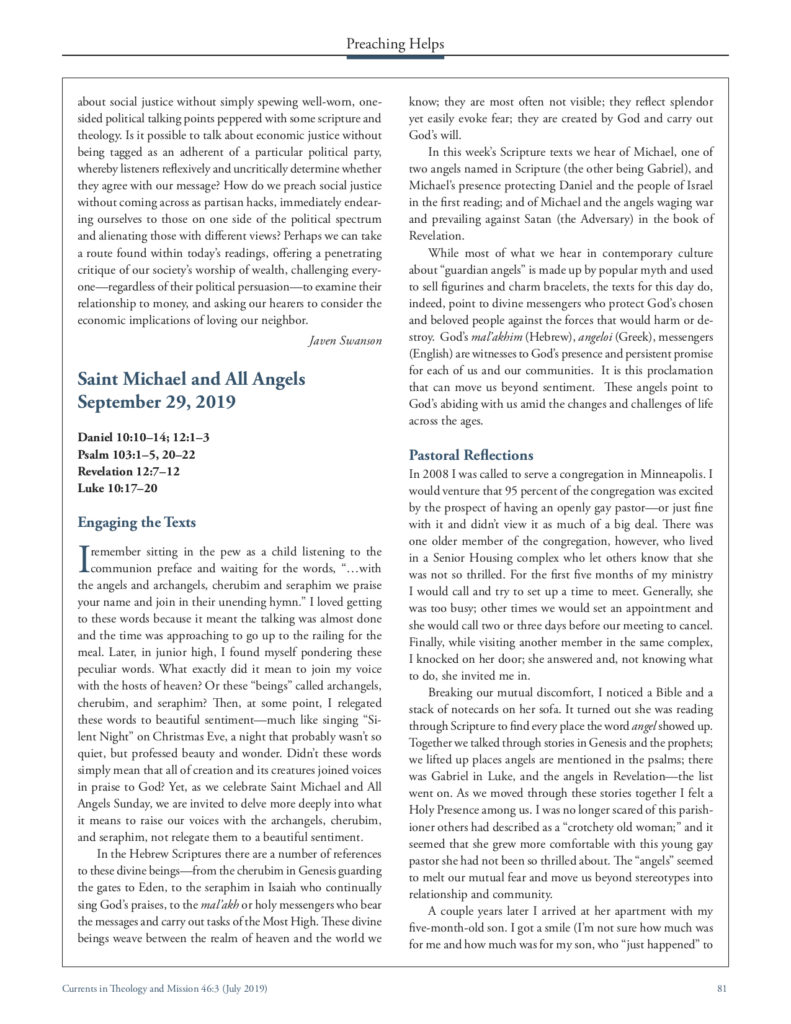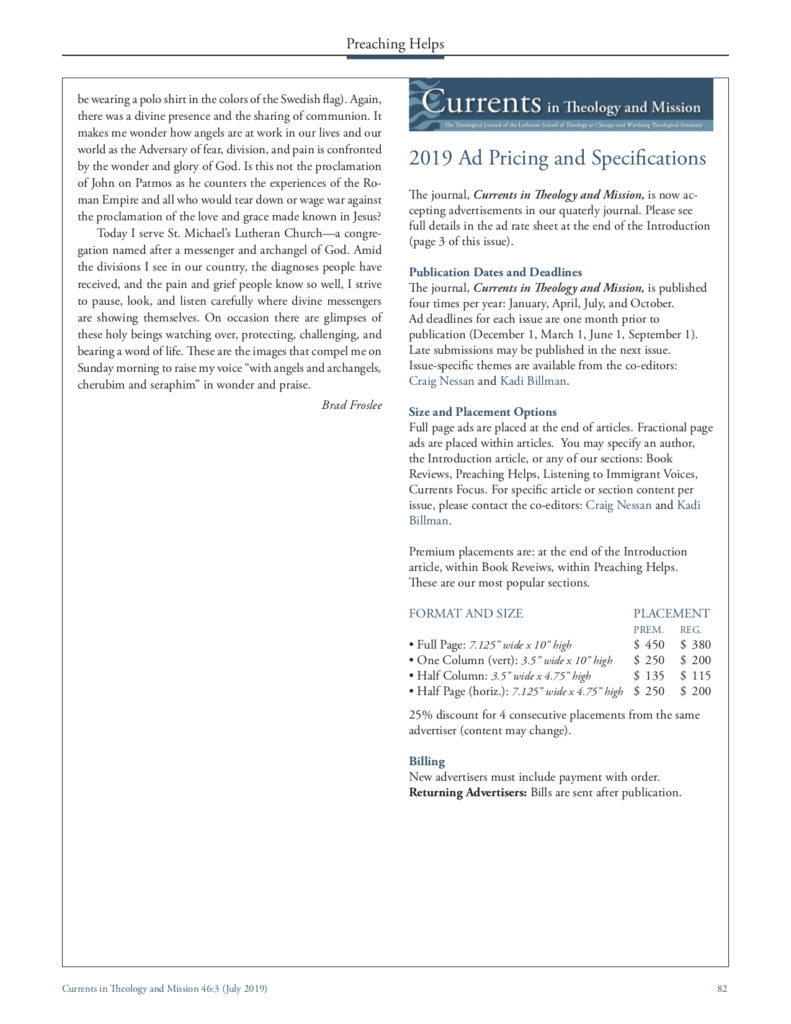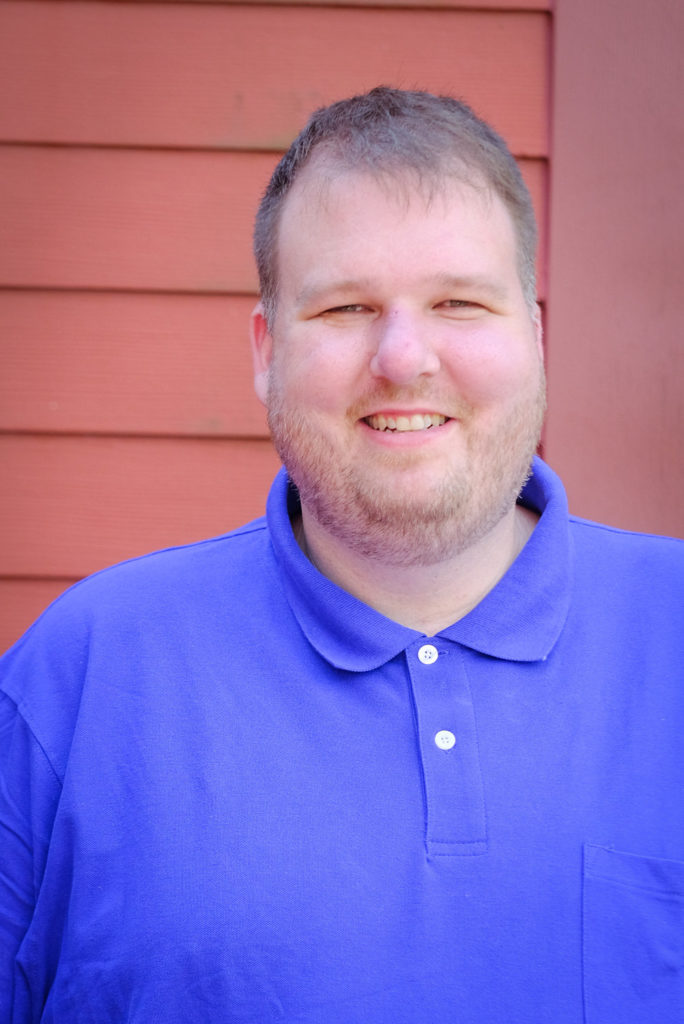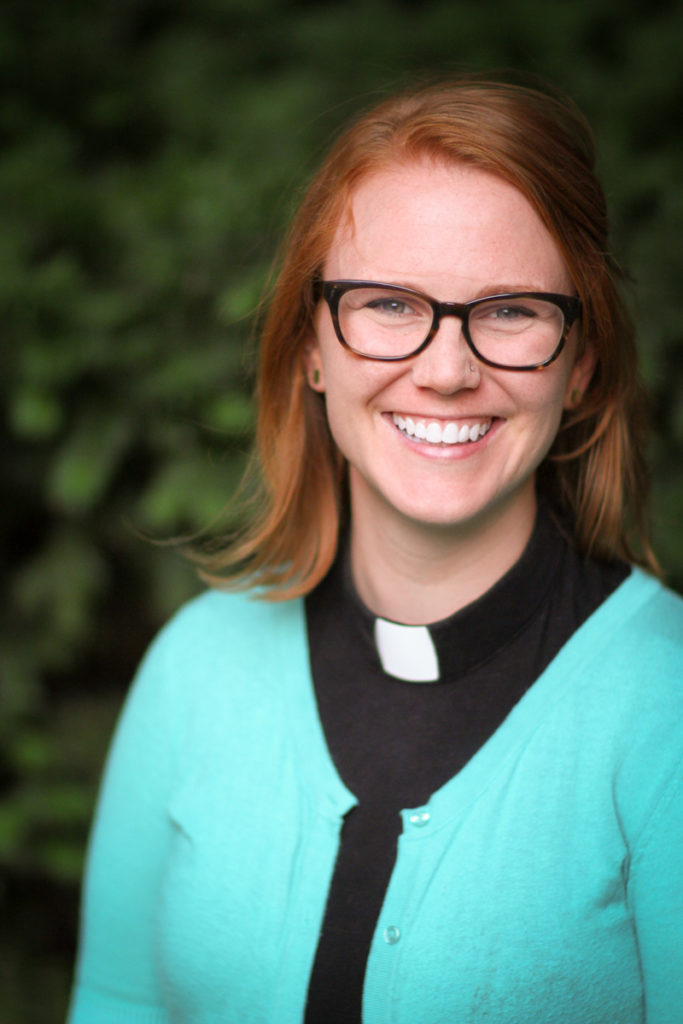In 1989, my father, the former Dean of Harvard Divinity School and Bishop Emeritus of the Diocese of Stockholm, Krister Stendahl, was invited to come and participate in the joyous but unsanctioned ordinations of Ruth Frost, Phyllis Zillhart, and Jeff Johnson. That participation in the San Francisco ordinations—indeed, his particular hands upon the heads of the ordinands—would have been seen by many as a valuable endorsement of an action being taken despite the ELCA’s denial of approval. This church was still in its post-merger infancy and was perceived by many to be a fragile thing, so very vulnerable to the conflicting and centrifugal passions within it. All the active bishops of the ELCA would be expected to close ranks against the dangers of disorder and schism but my father was in the unusual position of being both a much-respected bishop and yet technically outside of the ELCA’s structure. Though now again a member of our old home congregation he had been in the Church of Sweden when the ELCA was formed and was therefore no longer “rostered” here.
I asked him if he planned to attend and remember being surprised by his response. Though he clearly wanted to give strong support both to the ordinands and to the recognition of their ministry, he also seemed uncomfortable with having a personal and physical role in the service itself. There were in fact some schedule conflicts that would make it difficult to attend, and in addition I think he was concerned about a seemingly cavalier exploitation of his privileged episcopal status as at once eminent outsider and connected insider. But I believe his decision was even more driven by his sense that he could have become too important to a story that was not about him. The validity and sanctity of what was to be done didn’t need him. “I know why they want me there,” he said to me, and it wasn’t at all said unkindly but rather with the savvy insight that such an intended enhancement could instead prove a distraction from the important truth and meaning at stake.
And so he did not go but instead wrote this heartfelt letter to the three ordinands. My mother told me years later that he had been embarrassed, indeed mortified, to hear that his personal note had been shared at the service as if it had been an epistle reading, words from a biblical apostle. That wouldn’t surprise me—he would probably have thought it tacky—but it also seems to reinforce the thought that his written words of greeting achieved far more than his physical presence would have.
When my father showed me his letter, I smiled to see the Latin phrase extra ordinem. I recognized it from a conversation we’d had years earlier, a discussion of the eleven Episcopal women ordained in 1974 without their church’s canonical permission. The General Convention had twice voted down proposals to ordain women but then three bishops of the ECUSA—two retired and one who had resigned—had gone ahead with the ordinations in defiance of their church’s policy.
Both my father and I had expressed support for those new priests and for all the many who longed for the full inclusion of women in their church’s ministry. Both in his native Sweden and then in the American Lutheran sphere, my dad had played an important part in advancing the ordination of women, and—despite empathy for some Anglican friends in distress—I was convinced that those ordinations would come to be seen as signs of a Gospel that is itself similarly proleptic, i.e. a leaping forward to inhabit a future that has not yet fully arrived.
Our conversation had then touched on the way that a liturgical (or “high church”) ecclesiology could recognize a distinction between what was “licit” and what was “valid.” Something declared illicit might still be—or even have to be—recognized as valid. Though bishops of the ECUSA (even many who supported the ordination of women) did close ranks in 1974 to censure their renegade colleagues and declare the ordinations invalid, just two years later, when at last the General Convention had approved priestly orders for women, the validity of those earlier ordinations was officially recognized. It was in reference to this that one of us (I don’t recall which) remarked on how it was therefore that an ordination could happen outside the ordinary realm of order. “Extra ordinem” was the phrase we had used then played with the interrelated words extraordinary and ordination. So now in January of 1990 I smiled when I saw that earlier wordplay deployed not as mere intellectual observation but to serve in an urgent and holy cause, and in the years since I have frequently felt a similar gratitude play on my face as I saw Extraordinary Lutheran Ministries working to apply that same vision and wisdom.
As the 30th anniversary of those ordinations approaches and as we also look back on the decade since the ELCA allowed room for Queer people on its rosters, my rereading of this letter has reminded me of something more as well, something in its speaking not merely of change but of an ethic of fidelity and mutuality, of insight and openness to experienced human reality, of a pioneering ministry, and of grace and joy: all gifts at once ordinary and extraordinary.
The Latin root at both ends of the phrase “ordinatio extra ordinem” speaks of an order. My dad was of course referring to legitimate defiance of an oppressive and exclusionary order, but that defiance was also grounded in an ordo, an order still more fundamental, that sacramental joining and interplay of what is extraordinary with the ordinary stuff of our common humanity. I see that in his letter, and I remember that perspective from our subsequent conversations. It was part of our conviction that what was at stake was not what some Lutherans were arguing for as a Gospel-versus-Law grace but in fact a fidelity to that justice which is the ordo to which God calls us. It was also there in my dad’s later reminder to me that the urgent cause at hand was, for all of its importance, not the only importance before us, that we should not let that urgency blind us to the greater breadth of the many tasks and challenges to which we were called.
I suppose it might be thought that I’m overthinking, or at least over-theologizing, the significance of one little phrase, but I think that I’m correct at least in this: that our work and advocacy, and also much of the blessed change that has come, has in fact involved just such an interplay as I’ve tried to suggest. On one side has been the recognition and affirmation of the extraordinary gifts and the particularity of the lived experience that LGBTQIA+ persons bring to the church. But along with the celebration of the gift of those gifts there has also been this other side, the conviction and insistence that such particular and extraordinary individuals are indeed, simply and sacredly, ordinary.
I think—no, I know—that my father would have approved on both counts. In fact, I now see his smile.
 John Stendahl was born in Sweden but came to the US when his father became a junior professor at Harvard Divinity School. What in 1954 had been expected to be a shorter sojourn in this country extended to deeper formation and belonging and thirteen years later the Stendahl family became citizens, pledging themselves to the life and political shaping of this nation. John graduated from Harvard College with a concentration in American History and Literature and went on for his MDiv at Yale Divinity School. After his ordination in 1974 John served parishes in Pennsylvania, Maine, and Massachusetts and was also active, both regionally and nationally, in ecumenical and interfaith dialogue. He was a voting member at most of the ELCA Churchwide Assemblies from 1993 to 2009 and had the privilege of casting one of the votes that paved the way to reform of the church’s policy ten years ago.
John Stendahl was born in Sweden but came to the US when his father became a junior professor at Harvard Divinity School. What in 1954 had been expected to be a shorter sojourn in this country extended to deeper formation and belonging and thirteen years later the Stendahl family became citizens, pledging themselves to the life and political shaping of this nation. John graduated from Harvard College with a concentration in American History and Literature and went on for his MDiv at Yale Divinity School. After his ordination in 1974 John served parishes in Pennsylvania, Maine, and Massachusetts and was also active, both regionally and nationally, in ecumenical and interfaith dialogue. He was a voting member at most of the ELCA Churchwide Assemblies from 1993 to 2009 and had the privilege of casting one of the votes that paved the way to reform of the church’s policy ten years ago.
John retired last year and lives with his wife in the Boston area, not far from their two daughters and each of their families.






 Each year, Extraordinary Lutheran Ministries names a
Each year, Extraordinary Lutheran Ministries names a 